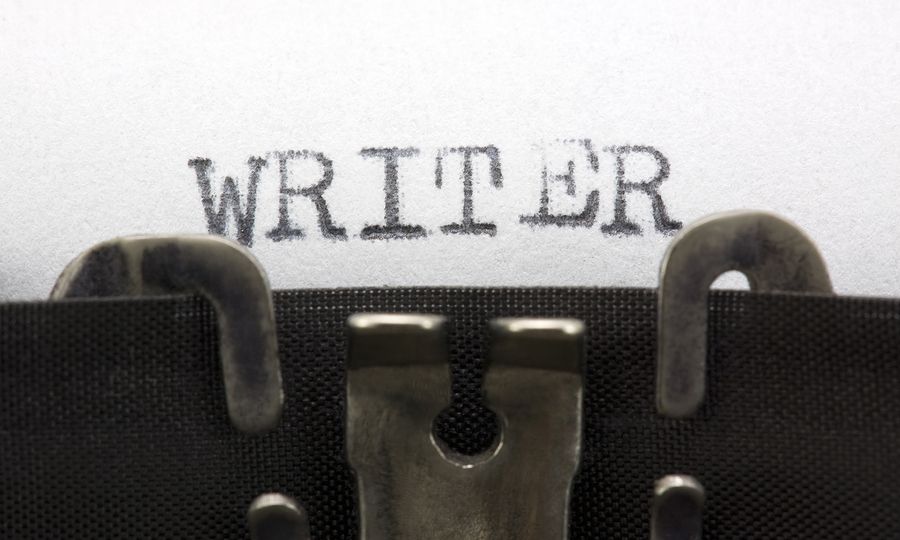
This week’s Comic Revolt takes a subjective look at which writer’s have or continue to blaze a trail in the medium of comics and graphic novels. This isn’t a ranking list, which would be useless in my estimation, because there are so many opinions and ways to look at writers. However, I’m only looking at ten writers.
Personally, I’m interested in writer’s that use unique storytelling methods or provide a unique spin on traditional storytelling methods. There will be some obvious choices here just the same as some of you will be baffled by the exclusion of some writers. This is not an exercise in slighting those writers.
The purpose of this week’s column is to convey in the best reasoned fashion why a writer has been included on the list and to get conversations going about who readers like and why. Having said that, let’s get on with this.
He got me back into comics after I’d lost interest in the super hero genre. My first introduction to his work was The Invisibles, which blew my mind for many reasons. His non-linear narratives, references to pop culture and the esoteric, and nuggets of knowledge delving into quantum physics showed a fearless and bold attempt to elevate the reader’s experience.
In a time where many a writer was guilty of pandering to the lowest common denominator, Morrison treated his readers as intellectual equals by constantly pushing the boundaries of how a story could be conceived and related to the human condition. Amongst his many works, The Invisibles, Flex Mentallo: Man of Muscle Mystery, and his Animal Man run captured my imagination and respect the most.
For those of you not into non super hero works, Burns may not register, but you should do yourself a favor and look him up. Probably best known for his masterpiece Black Hole, he excels at telling stories about the awkward and sometimes surreal feelings we experience while growing into ourselves. He’s also one of the few writing talents that has equally amazing artistic talents, which really makes for a pure reading experience.
Besides Black Hole, his other notable works include El Borbah and Big Baby. Each title has outright bizarre premises that accentuate the ideas he conveys about life, emotion, and getting through life. His confessional narratives and superb dialogue make his stories highly relatable despite their mondo surreal backgrounds.
If you don’t read Saga, you’re missing what I consider to be the best comic book out there on the stands. Vaughan has such a knack for creating wildly inventive stories by conceiving of the most bizarre premise possible and homing in on its heart like a heat seeking missile. The man could write a story about toasters (Wait! Bill Sienkiewicz already did) and somehow make it relatable, honest, and just plain fun. He constantly examines and challenges how society views certain issues without being preachy or didactic, leaving it up to the reader to form their own opinion.
Ex Machina was the first title that hooked me on his unique style and intellect. Things only got better as I dived in to Y: The Last Man. Even though it’s only six issues in, I would argue that Saga is his best series, which is saying a lot. If only he wrote the last season of Lost instead of just season four…then I may not have been so disappointed in the way that show ended.
He has an Elmore Leonard like knack for writing dialogue that really makes his work stand out. His recently finished series Scalped wrapped up a complex set of storylines in a masterful way that worked on the same level as Battlestar Galactica’s in terms of providing logical conclusions to the different trajectories of each character. That’s a tricky thing to pull off because of the clarity in vision required to see a story from the mountain instead of the road.
If you haven’t read Scalped yet, get off your lazy duff and slide over to the computer to order it. While you’re at it, read The Other Side, which provides a gritty, even handed examination of two enemy soldiers in Vietnam.
Of course you knew he would have to pop up in this list because that’s just the way it is. Gravity falls, the sky is blue, and Neil Gaiman can write. His radical reinvention of writing in the comic book medium filled a needed space in comics at the time with his fantastically conceived Sandman stories. He may not have been the most out loud audacious of the British Invasion, but his work spoke loudly as he took reader’s on a trip into unreality.
It’s pretty obvious to say that you should start with the first volume of Sandman and never look back, but that’s not all. Take a walk on the wild side and look at some of his prose masterpieces like American Gods or Stardust. I’m particular to American Gods for its seamless weaving of various elements like mythology with Americana.
Mind MGMT is my 1B to Saga being my 1A. I love them both though for entirely different reasons. Kindt has this amazing quality of mesmerizing readers with his dreamy artwork and even dreamier storytelling. It’s like he’s discovered this magical formula to hypnotize readers with his casual narratives on some hardcore stuff. He has the complexity of John Le Carre and the inventiveness of Ray Bradbury.
I picked up Revolver on recommendations from a pretty darn good writer (Thanks, Scott Snyder!) and found myself wondering why I hadn’t heard of him sooner. Kindt may write the most satisfying stories right now because his methods imbue a sense of patience in readers.
It’s been a bit since he wrote something truly awe inspiring, but you cannot discount the double threat of Miller’s storytelling and art. My first introduction to him was his amazing retelling of Batman’s origin in Year One. While he could have easily drawn the title too, he left those duties to the amazing David Mazuchelli and focused on writing one of the best works of its time. The narrative, dialogue, pacing, and resolution were a revelation, demanding careful study by any and all who wish to write comics.
Many fans prefer The Dark Knight Returns, which is understandable, but it was the even approach he took to writing Year One that won me over. Miller can be a bit over the top with some stories, but his characterization of that story was spot on. His over the top approach has worked great with Sin City’s many volumes as well as 300.
Like many a great British writer, he came up through the 2000 AD stable with some wildly entertaining stories. I particularly enjoyed Bad Company because of the twists and turns into the bizarre it took, becoming more than just a typical future war story. Milligan’s sense of character and dialogue garnered a lot of respect, but his sense for unconventional stories kept him from attaining as high of a profile as other British writers.
Skin remains one of his strongest works and showed an absolute fearlessness in storytelling with its subject matter and long fight to see the light of day after it was passed on for its salty language served in heavy doses. Milligan’s current run on Hellblazer is character defining as I find he’s truly captured Constantine’s character and world perfectly.
Bruce Wayne isn’t Batman; Scott Snyder is. Seriously though, the man’s off the scale enthusiasm for the Dark Knight, and his wildly inventive uses of Gotham as a character rather than set piece, revitalized the possibilities for the iconic character. His run on Detective Comics recognized the dark demon that Gotham is and thrust the city into a prominent role in characterizing the Batman family and his gallery of rogues.
His current run on Batman along with his equally impressive titles Severed and American Vampire use interesting aspects of history and setting to create a unique feel to his work. There are so many distinct voices in his narratives too, making him an interesting cross between Flannery O’Connor and Stephen King when it comes to eerie tone setting and characterization. My favorite work of his remains his short story collection Voodoo Heart. It creates uncomfortable feelings about the dark truths lurking in the heart.
No list would be complete without paying the devil his due. My first introduction to Alan Moore’s work was as a wee lad via reading The Killing Joke. I found myself terrified yet sympathetic to his portrayal of the Joker. This particular story and many others left an indelible impression on my impressionable, young mind.
Watchmen continues to be my Everest as I look at the sheer scale of story, complexity of character and plot, and clarity of story. A few friends have conveyed their feelings about whether it’s dated, but I think that misses the point. The story wasn’t supposed to be a peek into the future like 1984; it was a statement about how to approach storytelling. While I marvel at the brilliance of V for Vendetta, his run on Swamp Thing, and his early 2000 AD work, but it’s Watchmen always sitting on my night stand, ready for another look.
I want to hear from you! Leave comments below or tweet me at @DavidGillette1 to keep the conversation going on great writers and their storytelling techniques.



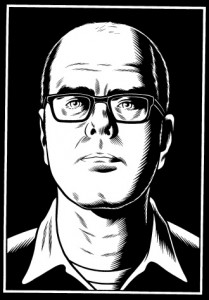
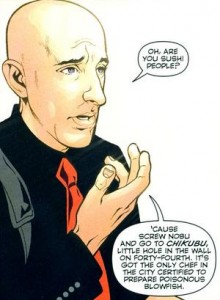


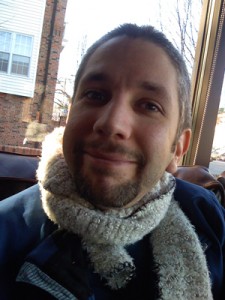
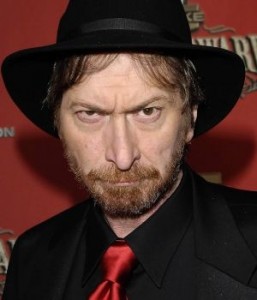
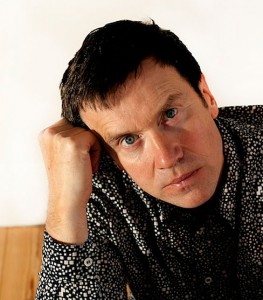
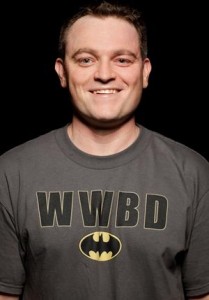

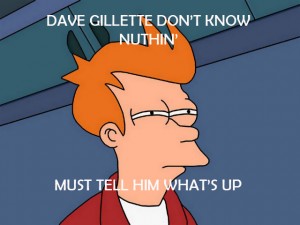















No Bendis or Brubaker huh?
Brubaker's a damn fine writer, and I considered him quite a bit off the strength of Fatale. Bendis just doesn't do it for me. I've read his Daredevil and Spider Woman runs and just didn't see what the fuss was all about. His dialogue doesn't do it for me. Seems like he's watched too many Scorcese or Coppola films with his crime boss types.